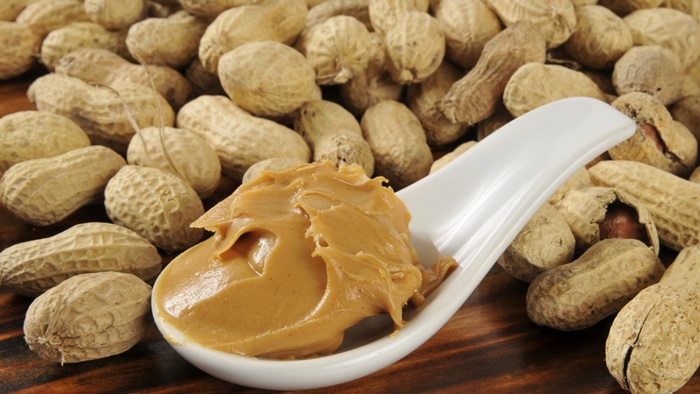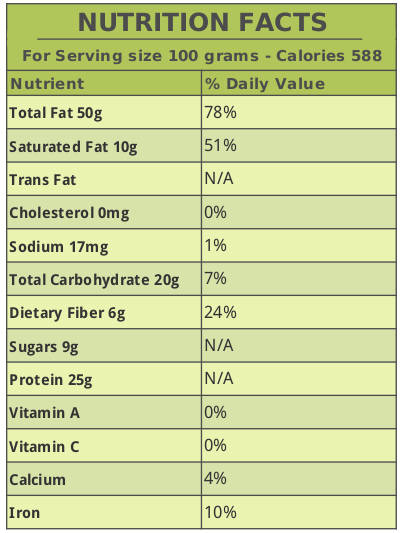
“Take me out to the ball game. Take me out with the crowd. Show me your peanuts and Cracker Jacks. I don’t care if I never get back.”
These classic lyrics to “Take Me Out to the Ball Game” directly link peanuts with America’s pastime of baseball. Should the song’s lyrics be changed to reflect a healthier America?
Peanut butter is one of those foods that you just can’t seem to remove from the top of your mouth. Maybe there’s a good reason why this so-called healthy food gets stuck. Is there a chance it shouldn’t belong there? Is peanut butter actually good or bad for you? Know the complete facts.
Peanuts have been deceiving you this whole time. I bet you even think they are nuts! Peanuts are actually part of the legume family. They have lived a long, storied history for thousands of years.
Peanut Butter Nutrition Table
Peanuts and peanut butter contain monounsaturated fats, which are linked to a reduced risk of cardiovascular disease. They are also high in nutrients such as manganese, tryptophan, niacin (vitamin B3), folate, vitamin E, and copper.
Peanut butter was promoted as a healthy food, high in protein and low in carbohydrates, and although it does have those benefits, today there are potential dangers and risks associated with peanuts and peanut butter.
That’s enough of what makes peanuts and peanut butter a healthy food. I’m here to tell you why you shouldn’t be consuming this tiny legume, whether it’s crunchy or smooth.
6 Reasons You Should Remove Peanut and Peanut Butter from Your Diet
1. Peanut Butter Could Contain Trans Fats
When you purchase peanut butter, always check the label. Like with any processed product, the fewer ingredients, the better. With a lot of generic peanut butter brands, sugar and hydrogenated (trans) fats are typically added for flavor.
2. Natural Peanut Butter Isn’t Better
The better peanut butter brands on the market include those with only peanuts and a little salt and are either natural or organic—or so you think. That’s because even in its most natural form, peanut butter is still detrimental to your health. It is more susceptible to toxic mold growth because it is less processed, which is ironic.
Society thinks the more natural, the better. In most cases this is true; however, all commercially produced peanut butter must go through aflatoxin testing before going to market. This is true, even if it is natural, organic, or straight from the ground.
3. Toxic Fungus Allergies
So, you’re allergic to peanuts. No, you’re not—you’re allergic to the toxic fungus found within the peanut. Peanuts are one of eight major food allergens in the U.S. The peanut allergy can usually be linked to the natural mold aflatoxin, which can damage the liver.
It is also a potent carcinogen, which can potentially cause cancer. Removing this so-called healthy food from your diet also means you are cutting down on the toxic load exposure from the environment.
4. Peanut Crops Are Heavily Contaminated with Pesticides
Other than aflatoxin, there are even more nutty problems to worry about. Non-organic peanuts and peanut butters are also contaminated with pesticides. This is a concern because peanuts have a very light shell, which can easily leach to outside materials. Conventional peanuts have a very high pesticide rate, as well as other chemical contaminants.
5. Too Much Omega-6
Omega-6, or linoleic acid, is an essential fatty acid, and is normally an important component for cardiovascular health, mental function, and energy production. But when your omega-6 is too high, it can result in inflammation.
This is a huge problem when every day you eat a peanut butter and jelly sandwich. Every 28 g (one-ounce serving) of peanuts contains 4,000 mg of omega-6. It’s more difficult to obtain omega-3 in the conventional diet with fish and flaxseed being primary sources.
6. Oxalates Cause Health Risks
Peanuts also contain another natural substance called oxalates. When we eat peanuts or peanut butter and the oxalates become too concentrated in the body’s fluids, they will crystallize and lead to health problems. It is recommended that people with gallbladder issues or with untreated or existing kidney problems avoid peanuts.
Alternatives to Peanut Butter
You shouldn’t consume toxic peanuts because there are other options. Tree nuts are less toxic and can also be made into butter such as almonds; however, tree nuts are also one of the major food allergens in the U.S.
If you’re looking for healthy butters, sunflower seed or pumpkin seed butters are another option. Sunflower seeds help lower blood pressure, while pumpkin seeds assist with heart disease prevention and reduce the risk of cancer.
Bottom Line
Sunflower seeds are a much better option for a ball game and you should also try it on your organic whole grain toast. The bottom line is that there are several concerns with peanut butter and its toxins, so it would be more beneficial to your health if you just skipped the Skippy.
Related:
- Benefits of Peanut Butter for Bodybuilding
- Study says: Peanut Butter May Reduce Risk of Obesity
- Peanut Allergy: Foods to Avoid, Allergy Management and Treatment
- Peanut Butter May Help Reduce Obesity and Type 2 Diabetes, Studies Suggest
- Does Peanut Butter Cause Constipation?














